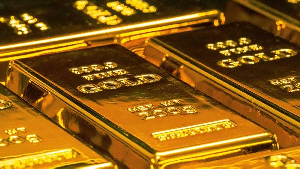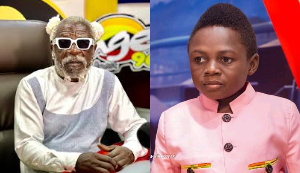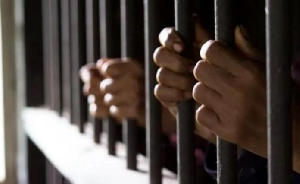Elizabeth Ohene, a journalist who held ministerial positions, including Education and Information in the Kufuor Administration, has taken the New Patriotic Party (NPP) Kenkey propaganda against the Mills administration to the BBC akin to what she did against the Rawlings regime in the 1980s and the 90s.
In a June 5, 2012, article to the BBC, Ms. Ohene wrote “In fact, the prices of goods seemed to go up every time I looked and people appeared to be complaining a lot about the cost of living”.
She dishonestly likened the Ghanaian situation to the worsening financial crisis in Greece, where from the last decade, a debt binge came crashing to an end in late 2009, provoking an economic crisis that decimated the country’s economy, brought down governments, unleashed increasing social unrest, mass unemployment and depression.
In reference to President John Mills, the Abutia-Teti-born lady wrote; “It takes a serious emergency for a Ghanaian man to go to the market to buy kenkey.”
One could see traces of the recent comment on the economy by her party’s running mate, Dr. Mahamudu Bawumia, in the write-up in which she conceded she lacked expertise on economic matters.
Her write up begins with the intro “In our series of viewpoints from African journalists, Elizabeth Ohene – who was a minister in Ghana’s former NPP government – compares what is happening in the eurozone with the crisis of her country’s currency”.
I have of course, like everybody else on the globe, been following the euro crisis. There is no escaping it. Even though, I must confess freely, economics is not my strongest area of expertise.
But it would seem the relentless coverage of the financial meltdown in much of the developed world has forced all of us to learn the arcane language and ways of the economists.
The one thing I have learnt in following the eurozone problems is that no matter how hard I try, I cannot understand what is going on.
You need to master the politics of Greece, Ireland, Spain, Portugal and Italy, as well as Franco-German relations to be able to understand the euro; and that frankly is all too much for me.
So I had thanked God for the small, simple currency that is the Ghana cedi. But, I am afraid, now there are strange things happening to the currency and it is looking like you need the same high-level financial expertise to understand our humble cedi.
‘Unpatriotic’ “It takes a serious emergency for a Ghanaian man to go to the market to buy kenkey”
A few months ago, the government counted as one of its achievements the claim that the currency had been stable under their watch.
This claim appeared a touch unreal as the prices of goods did not seem to bear this out.
In fact, the prices of goods seemed to go up every time I looked and people appeared to be complaining a lot about the cost of living.
Vice-President John Dramani Mahama offered a theory that was new to me that those who were complaining must be suffering from a condition that makes a person unable to acknowledge the truth because of a preset mental condition. He did not give this condition a name, but I decided to call it the “Dramani Syndrome”; after all, it is not every day a vice-president makes a discovery that adds to the knowledge pool of a serious discipline like psychiatry.
Then John Atta Mills, the president of the republic, made a dramatic intervention. He staged a walkabout in one of the open markets in Accra to buy a ball of “kenkey” – a local staple that is eaten for breakfast, lunch or supper – to prove that prices were not as high as his political opponents were suggesting.
It takes a serious emergency for a Ghanaian man to go to the market to buy kenkey, particularly when his wife is around. That is very much a job for women.
Then I read a newspaper editorial which seemed to suggest that some unpatriotic people were talking down the cedi. If you talked openly that the currency was depreciating, it would do just that even though it was not weak at all.
Now I happen to like the vice-president, and the Dramani Syndrome sounded like a condition that might land me in the psychiatric hospital so I determined to see no evil and talk no evil.
“The cedi is strong, the cost of living is low,” I kept repeating to myself. I stopped buying kenkey because I did not want to contradict the president.
Election year I am not quite sure at which point things changed and it became official that indeed the currency was having difficulties.
An editorial in a newspaper described as the mouthpiece of the government has gone so far as to describe the cedi as being in free fall.
Then in the last week a delegation came from the IMF to see things for themselves; and they said openly that the cedi was depreciating and the cost of living was rising.
Had they been struck with the Dramani Syndrome, I wondered? Surprisingly, the president did not pull out his ball of kenkey to contradict their findings. He did say, though, that this being election year, he did not want the people to suffer.
The eurozone countries have been having elections – Ireland, Spain, France, Greece – and it sounds to me like the “cedizone” is watching carefully.
General News of Wednesday, 13 June 2012
Source: The Herald












